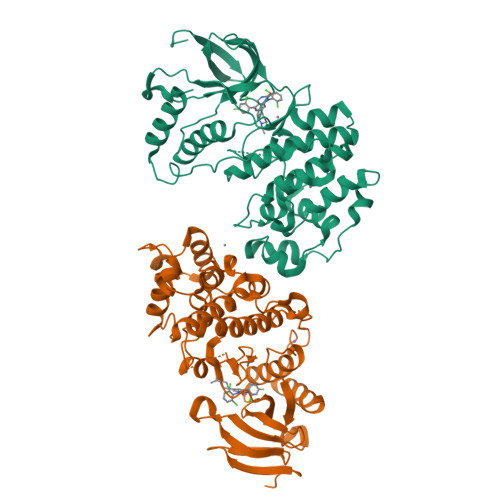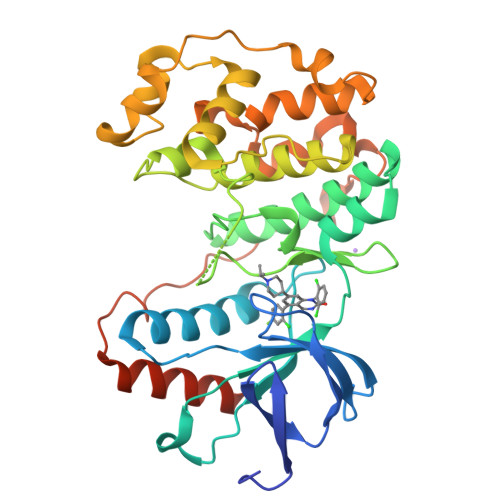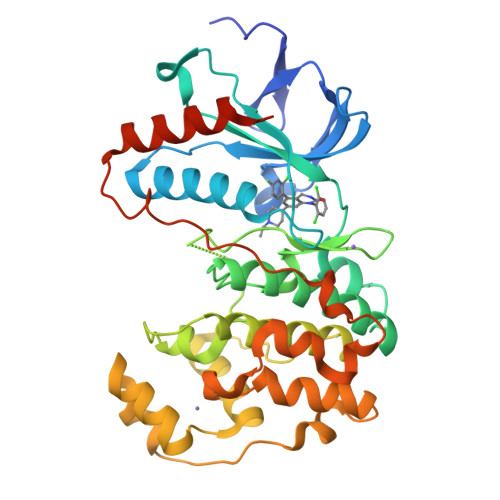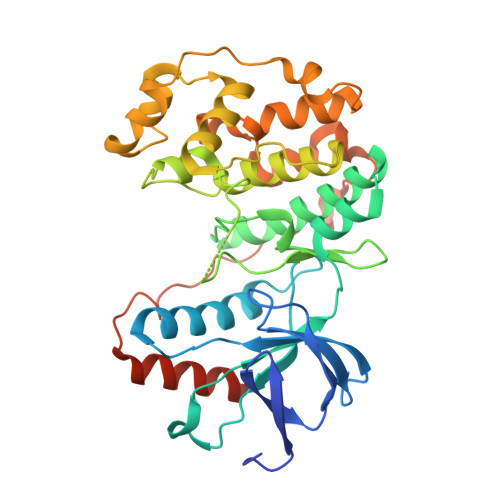The three-dimensional structure of MAP kinase p38beta: different features of the ATP-binding site in p38beta compared with p38alpha.
Patel, S.B., Cameron, P.M., O'Keefe, S.J., Frantz-Wattley, B., Thompson, J., O'Neill, E.A., Tennis, T., Liu, L., Becker, J.W., Scapin, G.(2009) Acta Crystallogr D Biol Crystallogr 65: 777-785
- PubMed: 19622861
- DOI: https://doi.org/10.1107/S090744490901600X
- Primary Citation of Related Structures:
3GC7, 3GC8, 3GC9 - PubMed Abstract:
The p38 mitogen-activated protein kinases are activated in response to environmental stress and cytokines and play a significant role in transcriptional regulation and inflammatory responses. Of the four p38 isoforms known to date, two (p38alpha and p38beta) have been identified as targets for cytokine-suppressive anti-inflammatory drugs. Recently, it was reported that specific inhibition of the p38alpha isoform is necessary and sufficient for anti-inflammatory efficacy in vivo, while further inhibition of p38beta may not provide any additional benefit. In order to aid the development of p38alpha-selective compounds, the three-dimensional structure of p38beta was determined. To do so, the C162S and C119S,C162S mutants of human MAP kinase p38beta were cloned, expressed in Escherichia coli and purified. Initial screening hits in crystallization trials in the presence of an inhibitor led upon optimization to crystals that diffracted to 2.05 A resolution and allowed structure determination (PDB codes 3gc8 and 3gc9 for the single and double mutant, respectively). The structure of the p38alpha C162S mutant in complex with the same inhibitor is also reported (PDB code 3gc7). A comparison between the structures of the two kinases showed that they are highly similar overall but that there are differences in the relative orientation of the N- and C-terminal domains that causes a reduction in the size of the ATP-binding pocket in p38beta. This difference in size between the two pockets could be exploited in order to achieve selectivity.
Organizational Affiliation:
Department of Global Structural Biology, Merck Research Laboratory, Rahway, NJ 07065, USA.




















